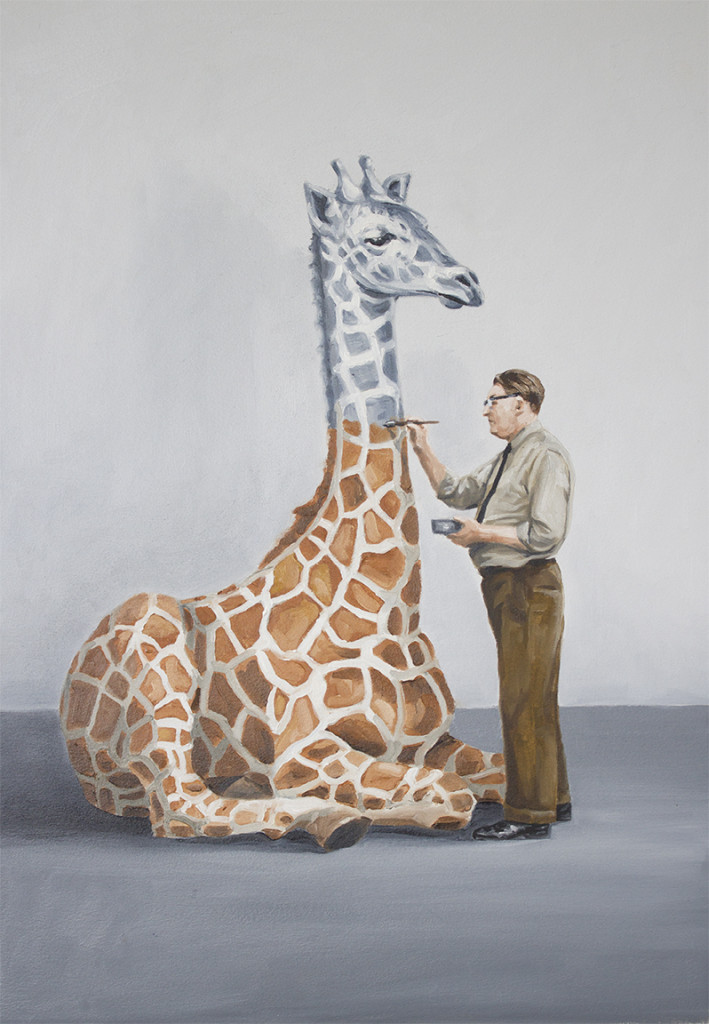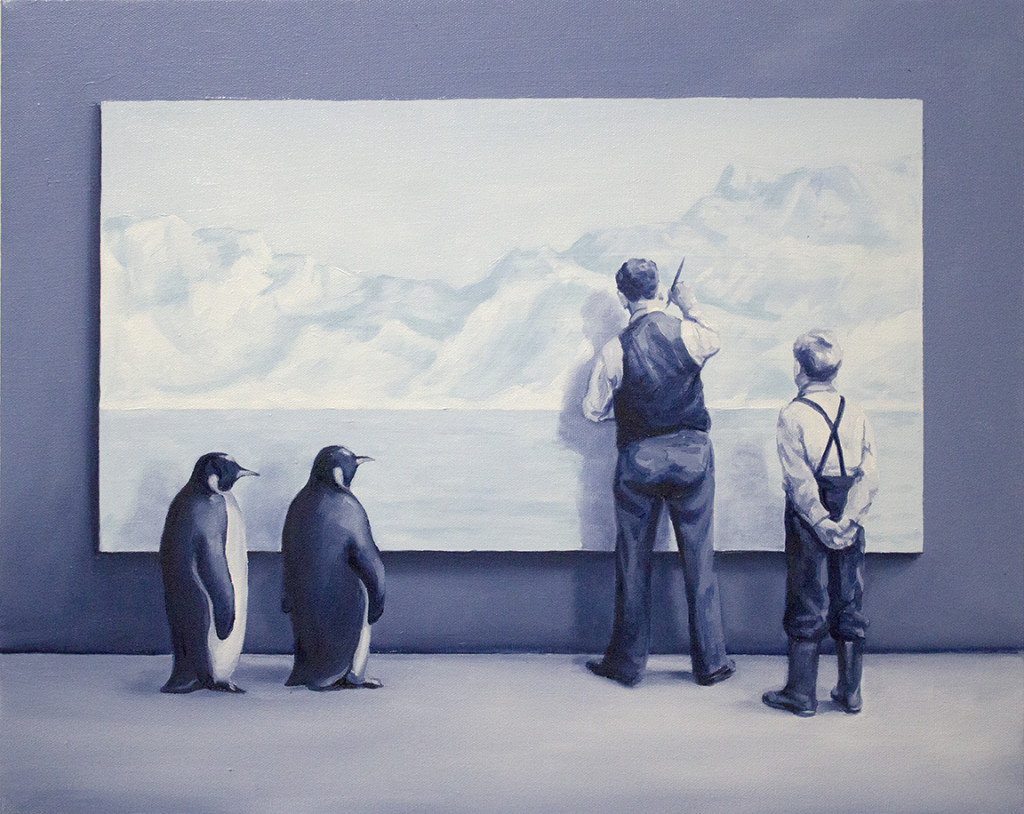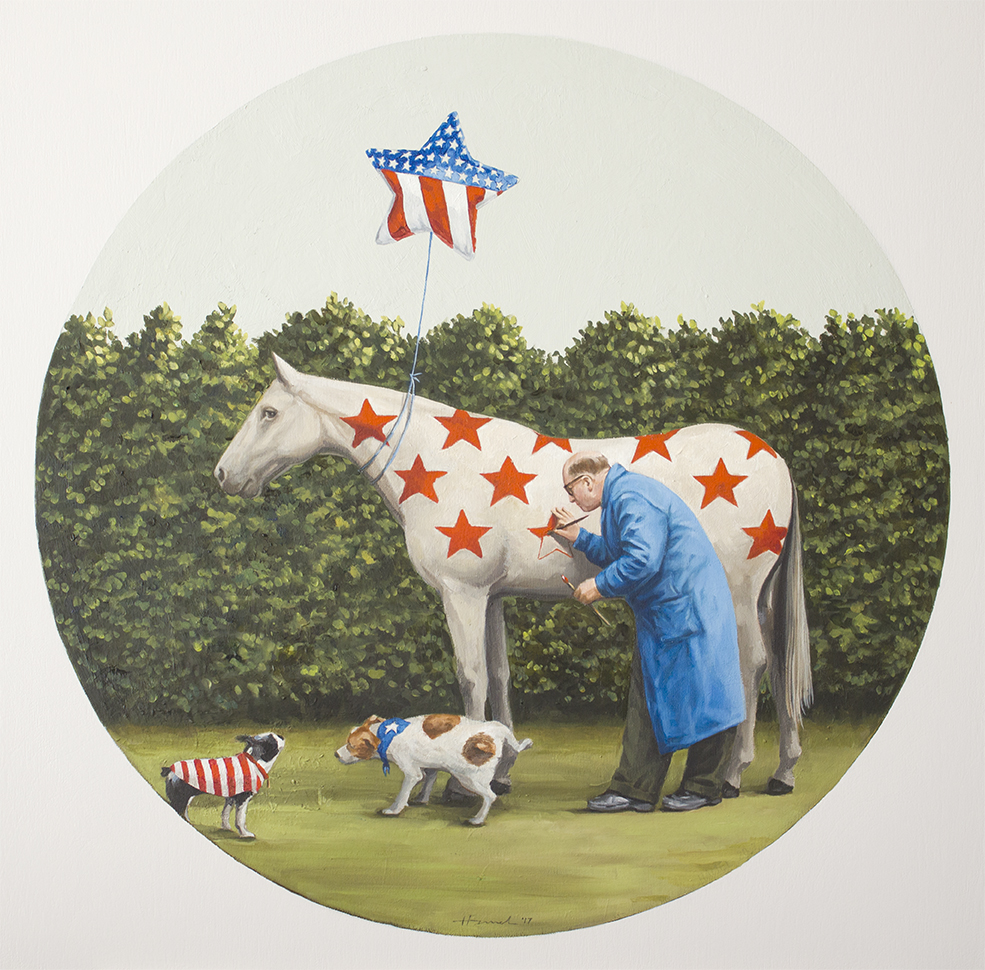Toni Hamel works across different disciplines: drawings, paintings, sculptures and installations. Hamel is able to select and use the peculiarity of materials (traditional and non-traditional) to support the particular message she needs to convey. She describes her work as “an illustrated commentary on human frailties“.
The selection of artworks for this interview are taken from “High tides and misdemeanors“ and “The land of Id” series.

Toni, where do you get your inspiration?
My inspiration comes from life as I know it. Contemporary culture, socio-political issues and my concern for the environment are all topics that drive my artistic practice. Since I’m an avid consumer of documentaries and cable news, whatever is happening in the world around me somehow finds its way into my work.

What is the relationship and influence between your cultural background (country, studies, etc.) and your artworks?
I was born and raised in Italy and moved to Canada in my early twenties. I also received my formal education there and perhaps that is why, to this day, I still see my work as representative of the European, rather than the North American, aesthetic canons.

What are you much focused in?
My work, my family and my two dogs. They are all essential and all seem to keep me balanced.

Have you encountered any difficulties when you first started your art/freelance career?
Of course! Hasn’t anyone? But I just kept on going and in the meantime I tried to learn everything I could to improve my chances in this very competitive field. Most of my life has been spent in the creative field in one way or another. From graphic design/illustration to interactive media development to fine arts, the path has been a natural progression for me and the skills I acquired in one profession greatly helped me in another.

Over these years, what is the most important thing you have learnt from your profession?
“Keep on doing what you are doing and the world will come around“ was the mantra that I kept repeating to myself when things were tough at the beginning of my career as an independent visual artist. I’ve learned that our own internal critic is our worst enemy, so I taught myself to ban my self-doubt and to abstain from judgement.

Do you think that a creative job is just creativity or it’s discipline too?
Creativity is part of being human, so that’s not the difficult bit. What sets the artist apart is the discipline one imposes upon oneself to get the work out of our head and into the world.

Are you currently working on new projects?
I’m currently working on the “High tides and misdemeanors” body of works, which is a sequel to my “Land of Id” series.


“Most of my life has been spent in the creative field in one way or another […] the path has been a natural progression for me and the skills I acquired in one profession greatly helped me in another”




“What sets the artist apart is the discipline one imposes upon oneself to get the work out of our head and into the world“


“I’ve learned that our own internal critic is our worst enemy, so I taught myself to ban my self-doubt and to abstain from judgement”




High tides and misdemeanors (2017 – 2018)
This series is the sequel to “The land of Id”. Although it still offers my viewpoints on the peculiar relationship between humans and the natural environment, it also touches on other social phenomena typical of our age. In other words, it is one more attempt to document what I have seen, what I have heard and what will come.
The land of Id (2015-2016)
In Freudian psychoanalytic theory, the Id refers to the component of our psyche responsible for our most primitive impulses and drives. It is an egocentric, all-consuming urge to satisfy our immediate needs and desires without any consideration for possible consequences or repercussions.
Such theory perfectly describes our contemporary attitude toward our surroundings. Continuing my discourse on human behaviour, The land of Id focuses on humanity’s relationship with the natural environment offering two alternative yet equally interesting points of view. If on one hand it confronts us with the disastrous results of our ill-conceived rapport with nature, on the other it offers some levity and food for thought. The land of Id becomes a topsy-turvy world filled with tension and instability, where everything appears possible yet nothing is what it seems. Through symbolism and satire, The Land of Id eventually alerts us about the dangerous effects of our exploitative behaviours. [source]
Artist Website > www.tonihamel.net
Instagram > @tonihamel_artist
Twitter > @ToniHamelArtist
Facebook > www.facebook.com/toni.hamel.artist



